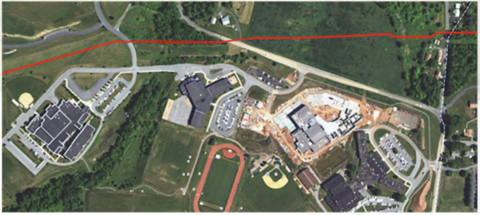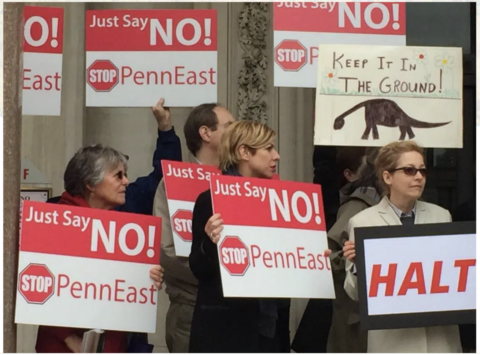In 1967, the organization now known as the Clean Air Council (the Council), headquartered in Philadelphia, started out as a project of The Tuberculosis Society, a nod to the growing regional interest in lung health. As their work became better known and more residents of coal-country took notice of their air quality, the Council grew to represent communities in Southern New Jersey, Southeastern and Southwestern Pennsylvania, Delaware, and Maryland. The Council is dedicated to protecting and defending everyone’s right to a healthy environment. Staff work through a broad array of related sustainability and public health initiatives, including public education, community action, government oversight, and enforcement of environmental laws.

Pennsylvania has been a fossil-fuel state since oil was first discovered in the state in 1859. The Keystone State entered a new boom cycle in the early 2000s when it was discovered that the U.S. could extract a large amount of methane gas from the Marcellus Shale through fracking. In the past 20 years, there have been numerous laws passed to promote, protect, and fund the fossil-fuel industry’s foothold in Pennsylvania—making it more challenging for residents to transition to a clean economy and protect their air quality.
Robert Routh, policy and regulatory attorney with the Council, explains, “It does make it harder to push for change with an entrenched legacy of pollution and related infrastructure. A great deal of money and political power is still behind further entrenching subsidies and proliferating the extraction and combustion of fossil-fuel resources in Pennsylvania. With only 4 percent of our state’s electricity coming from renewables, there is certainly room for growth – but changing our energy portfolio is a hurdle we’re always working to overcome.”
Joe Minott, the Council’s executive director and chief counsel, who recently celebrated 40 years with the organization, sees progress—albeit slow. ”The fossil-fuel industry in Pennsylvania itself is no longer a monolith. There are different interests, and now they are each protecting their own turf. When doing environmental advocacy in a state like Pennsylvania—a politically undecided state—we’re focused on measuring successes at every small step and counting every victory.”
Success looks different in every aspect of the Council’s work. When Minott came on board, there were just three staff members, but now, in 2022, the team has grown to thirty two people. Their public health litigation team has grown to 10 attorneys, and there has been a tremendous increase in advocacy and education in Harrisburg and Philadelphia that is now having an impact at the federal level. In 55 years, the Council’s mission has changed from protecting everyone’s right to clean air to protecting everyone’s right to a healthy environment more broadly.

The Council recognizes that the people impacted by fossil fuels, residents of local communities, have the most experience and are the best messengers about the health and environmental hazards of the fossil fuel industry, so that’s who they hire as organizers. “They know the people, they understand the impacts and the history,” says Routh. Because of the frontline advocacy and education work the Council has done, they’re seeing public opinion toward fossil fuels changing, with growing concern over companies abandoning wells or drill sites that result in local health impacts.
Minott and Routh don’t see community organizing jobs going away anytime soon. “When litigation’s success is measured in getting a fossil fuel-fired power plant permit denied, seeing emissions reduced at a plant, or persuading plant financiers that community opposition is too great to move forward, we know our approach of going after the gas industry, again, again, and again…is working,” said Minott.
Energy Foundation (EF) first got involved in Pennsylvania in 2016 to see if local groups who were independently fighting air pollution and campaigning for public-health rights could come together and learn from each other. Shanna Cleveland, EF’s Program Director, Northeast Policy, notes, “EF has long worked to bring together broad coalitions across the country to work on climate and clean energy. The Council aligns really well with EF’s increasing focus on equity and community-led solutions. The EF team learns a lot from working with communities to come up with the most effective local campaigns to prevent new fossil facilities and provide new economic opportunities in clean energy.”
In the future, the Council expects their work to continue to be shaped, in part, by whomever is elected as Governor or serves in the state legislature. But, just as the Council has done since 1967, they will continue their work to protect everyone in the Mid-Atlantic region from harmful air pollutants.
Says Routh, “When it comes to climate change, every fraction of a degree matters. There will be setbacks, but every ton of carbon dioxide avoided and every fraction of a degree of temperature rise you prevent will ultimately help save lives and communities.”
 Story author Stephanie Hernandez Roman was an Energy Foundation intern in the summer of 2022.
Story author Stephanie Hernandez Roman was an Energy Foundation intern in the summer of 2022.

